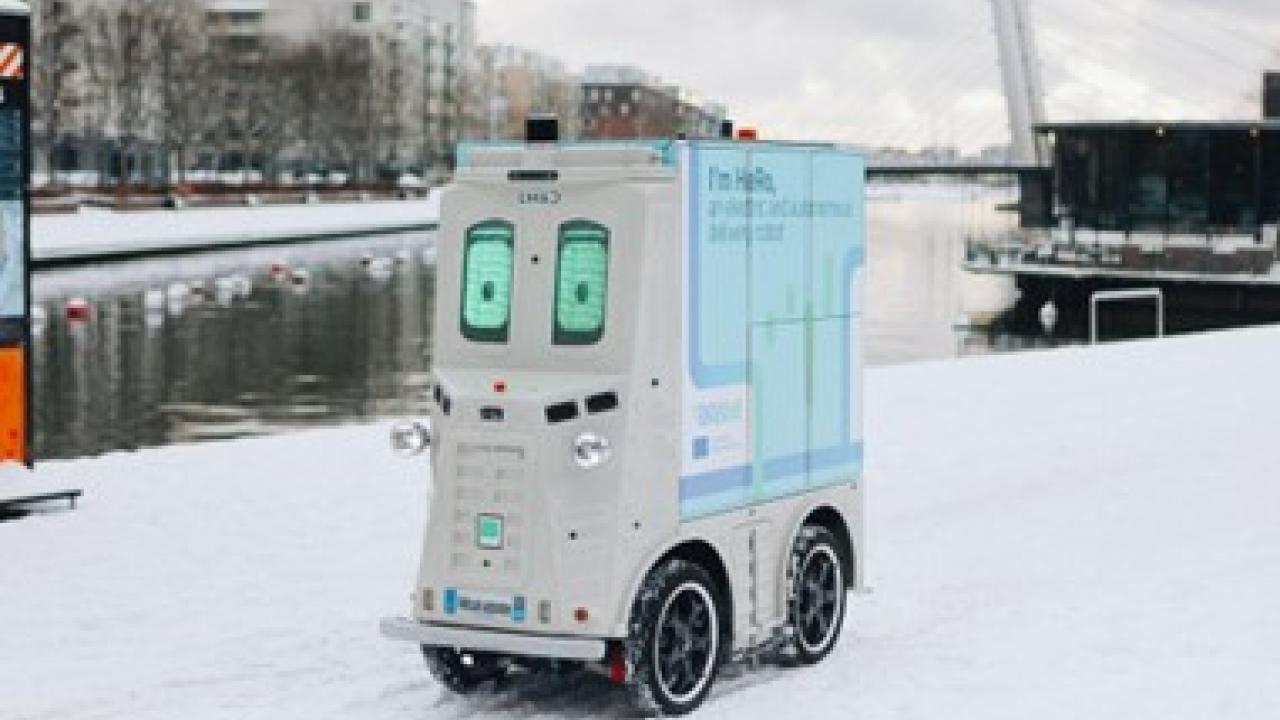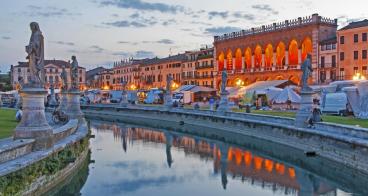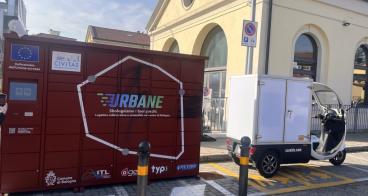Consolidated last-mile microhubs in Ruoholahti shopping centre

The Challenge
In Helsinki, one of the challenges has been to reduce the use of vans for deliveries in central areas of the city due to their contribution to local air pollution (NOx).
Also, the district of Jätkäsaari is a common bottleneck for traffic due to the west harbour passenger flows and logistics operations like trucks, which make it more difficult to execute the last-mile deliveries for the residents in Jätkäsaari using regular vehicles.
The Solution
Under the scope of the URBANE project, in iteration with the DISCO project, the Helsinki Living Lab established a microhub connecting an ecosystem of different stakeholders providing a variety of services ranging from first-mile customer service to last-mile deliveries.
The goal was to contribute to the physical internet by enhancing the collaboration of the ecosystem using a data-driven microhub. This ensured efficient enhancement of mobility services, especially last-mile deliveries. In addition, it enabled fusing and managing the physical, digital, virtual, emerging technologies, data, people, companies, ideas and business models in a novel way.
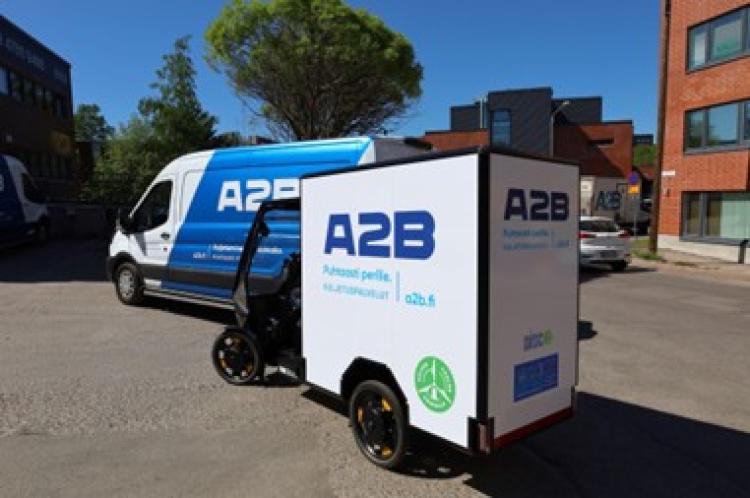
Making an impact
The microhub brought in a wider range of services for residents, a higher volume of parcels to distribute, the possibility to consolidate the parcels, and an enhanced image of urban logistics in the city centre. Multiple stakeholders increased the leverage when negotiating potential locations for operations, because there were more parties involved in the discussions. The collaboration between stakeholders was highly successful due to Digital Twin (DT) technology and blockchain smart contracts.
From an environmental perspective, significant CO2 reductions were achieved, particularly by using renewable energy for charging robots and cargo bikes. Additionally, the shift to ADVs and cargo bikes reduced the kilometres driven by combustion engine vans, thus alleviating urban traffic congestion. In addition, the residents perceived the ADVs in a positive light implying a future interest for similar solutions in the urban environment.
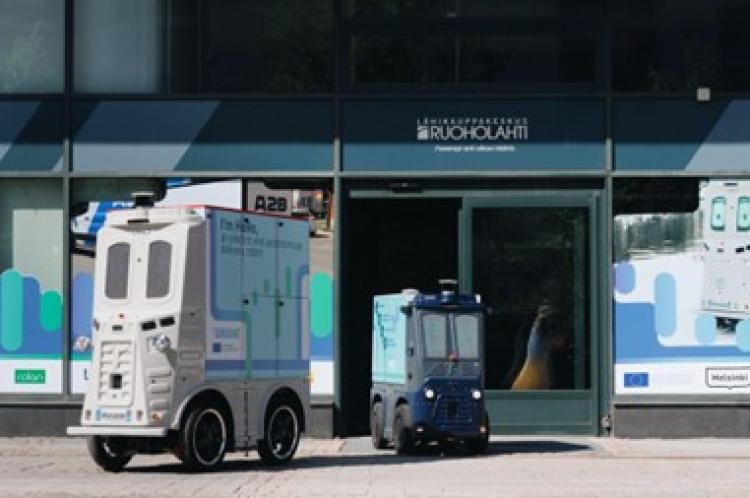
Lessons learnt
- The more stakeholders will be able to join the microhub, the easier it is to obtain a location for the microhub facility from the City of Helsinki. Private properties are also a possibility.
- It is crucial to verbalise the positive impact to residents and relevant stakeholders. The microhub was particularly popular thanks to a strong marketing campaign.
- The lack of a neutral orchestrator role meant that Forum Virium Helsinki had to step up and manage the microhub, therefore in future scenarios, a neutral orchestrator dedicated for the hub management is necessary.
- It was found through the Residential Survey carried out, that location and pick-up time are the most important aspects for residents when considering last-mile deliveries. The convenience in flexible times and nearby locations are the key value proposition.



